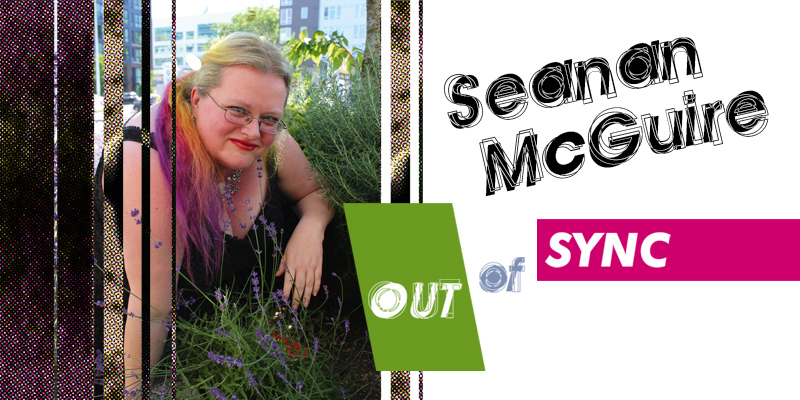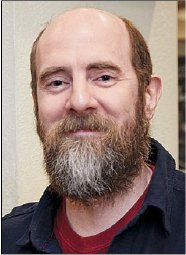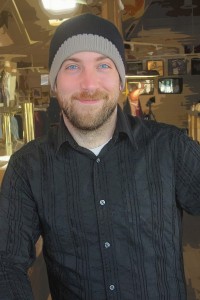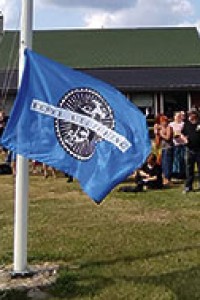Seanan McGuire: Out of Sync

Seanan McGuire was born January 5, 1978 in Martinez CA. She studied folklore and herpetology at the University of California, Berkeley.
She has worked as a phone sex operator, a technical support engineer, an exotic animal rescuer, a process engineer for communications company SBC, and a quality assurance engineer for a non-profit. She now writes full time.
McGuire’s debut novel Rosemary and Rue (2009) launched her October Daye urban fantasy series. Later books in the sequence include A Local Habitation (2010), An Artificial Night (2010), Late Eclipses (2011), One Salt Sea (2011), Ashes of Honor (2012), The Chimes at Midnight (2013), The Winter Long (2014), A Red Rose Chain (2015), Once Broken Faith (2016), The Brightest Fell (2017), and the forthcoming Night and Silence and The Unkindest Tide.
The InCryptid series launched with Discount Armageddon (2012) and continued with Midnight Blue-Light Special (2013), Half-Off Ragnarok (2014), Pocket Apocalypse (2015), Chaos Choreography (2016), Magic for Nothing (2017), and the forthcoming Tricks for Free. The Velveteen series currently consists of Velveteen vs. the Junior Super Patriots (2012), Velveteen vs. the Multiverse (2013), and Velveteen vs. the Seasons (2016). The Indexing series is Indexing (2014) and Indexing: Reflections (2015). Sparrow Hill Road (2014) collects linked ghost stories, while the forthcoming The Girl in the Green Silk Gown (2018) continues them in novel form.
She has published numerous novellas, both in series and standalone. Her Wayward Children series began with Hugo, Nebula, and Locus Award-winner Every Heart a Doorway (2016) and continues with Down Among the Sticks and Bones (2017) and the forthcoming Beneath the Sugar Sky. Her latest is standalone Dusk or Dark or Dawn or Day (2017).
Under the pseudonym Mira Grant, she wrote the Newsflesh quartet of SF novels about the aftermath of a zombie apocalypse: Feed (2010), Deadline (2011), Blackout (2012), and Feedback (2016); the first two volumes were Hugo finalists. She also published several stories and novellas in that world, including Hugo Award finalist “Countdown” (2011). When Will You Rise: Stories to End the World (2012) collects related stories. The Parasitology series, also as Grant, includes Parasitology (2013), Symbiont (2014), and Chimera (2015). The newest Mira Grant novel, Into the Drowning Deep (2017), launches the Rolling in the Deep series.
McGuire was active in fandom before becoming a professional writer, and is well known as a filksinger, winning numerous Pegasus Awards for her work. She has produced several CDs of her music, including Hugo Award finalist Wicked Girls (2011). She was part of fancast SF Squeecast, which won Hugo Awards in 2012 and 2013. McGuire won the John W. Campbell Memorial Award for Best New Writer in 2010. She lives in Seattle WA.
Excerpts from the interview:
“I’m originally from a small town in the East San Francisco Bay Area called Concord, which was this semi-rural area where people kept chickens in their yards and you navigated by the weird old tree down by the veterinary hospital. That has not only changed, but changed very rapidly. The gentrification of San Francisco hasn’t just affected San Francisco, it’s affected the entire Bay Area. As San Francisco’s middle class gets priced out, they cascade into Berkeley and Oakland, gentrify Berkeley and Oakland, and knock their middle-class out. Those folks are getting pushed deeper into the East Bay. Basically my hometown got invaded by hipsters and tech workers who hated it for not being San Francisco. There’s only so much of people insulting your home while refusing to leave it that you can take. At one point I looked around and realized Concord wasn’t there anymore. There’s still a city called Concord, but it’s not where I grew up, and it’s not what I love. Thanks to that, and thanks to climate change, which has shifted the rain and the frogs and the green things up north, the place where I’m living now, just outside of Seattle, is basically Concord of 20 years ago. I found myself a nice semi-rural suburb where it rains, and there are frogs, and people keep chickens in their yards, and you can navigate by the weird old tree. Only now, because of the way Seattle geography works, there’s a great big lake and a whole bunch of protected salmon runs, and gullies full of bears that will keep people from building too many condos and shoving me even further into the wilds – which is nice. I’m a rural girl. Not a farm country girl, but I like the chickens in the yard.
“I was a full-time writer for about two years by the time I moved. My bills stayed functionally the same. I took on a couple of housemates, because as everyone who writes knows, it’s not a consistently reliable income, so I need people to help me pay the mortgage when necessary. My cats are so much happier. I know that’s a weird thing, but they like the house better. It’s a bigger house, and it’s a cleaner house. I had a housemate in California who didn’t like the cats and they didn’t like him in response, and now everyone they live with is someone who feels positively toward them. The happier my cats are, the less time I spend worrying about them, the happier I am, and the easier it is to write. Part of the reason I chose Seattle rather than Indianapolis or someplace else that might have been cheaper is that I have more friends in the Seattle area than anywhere else. I actually get out of the house now, which is terrifying. I get out and do stuff. I don’t just hide in my writer cave and rumble. It’s been good, both emotionally and work-flow wise. My friends here are mostly non-writers. I know there’s a huge writer scene in the Seattle area, but I don’t drive, and all of us have circles we settle into – this is the person I go to the movies with on Tuesday night, and this is the person I go to the farmers’ market with, and all of the slots seem filled for the Seattle writers. They’re super friendly when they run into me, but they’re not necessarily shopping for a new Target buddy. Whereas I have my friends who are not from the writing community. Most of them are from the fannish community or the filk community, and they have been holding those positions open for me for years as they waited for me to move.
“I have friends in New York who have a guest room designated as my room, which I greatly appreciate. When I go to New York, which I tend to do about once a year to meet with my publishers, I’ll try to go for three weeks. That way I still have writing time built-in. There will be three days where I have meetings, three days where I write, and a day where I am social with the friends I am treating like a hotel. I just got back from a two-and-a-half week trip to Australia and New Zealand, where I was guest of honor at the New Zealand national convention, as well as the Australian national convention. I was in a place I don’t get to very often, it was a long trip to get there, and there was a lot of stuff I wanted to see, both for my own benefit and for the benefit of my writing, because your writing is better the more you see and seek out and do. I spent maybe a full day writing when I was there, if I woke up before my hosts did. Otherwise I went out and saw stuff and did things. It always depends on the deadlines. I try to work really far ahead of my deadlines so I don’t necessarily have to work when I’m traveling. That doesn’t always work out. I reviewed the page proofs for Feed while I was at the San Diego Comic-Con in 2009. You have not seen me cranky until you’ve seen me having to go through 50 pages of proofs before I go to SDCC.
“It’s a lot less stressful now that I’m not trying to hold down a day job, too. I’m in the extremely lucky percentage of writers that’s able to make a living just doing this, and I’m extremely grateful all the time, because I’m actually sleeping again. Now I mostly switch back and forth between a novel-length project and short fiction, sort of to cool down. I’ll do the novel in the morning, have lunch, and then do the short fiction project for however long it takes to hit my allotted words for the day. Then I’ll go play Overwatch.
“There was kind of a ringing silence when I won the Nebula Award. I could hear sounds and taste colors. Then we discovered that Irene Gallo, who is the managing editor at Tor.com, had put her chair on my skirt, so I tried to stand up and I fell down. Cat Rambo, who’s the president of SFWA, had been very worried about me because I get test anxiety from awards. She knew I wasn’t really eating or sleeping or breathing, saw me go down, and thought, ‘Oh, shit, she’s fainted.’ That was a fun time.
“We are in a renaissance of novellas. It is astonishing. Normally as a reader I can go: there are 10 things on this ballot and six of them I’d like to see win, and for four of them, it’s an honor to be nominated. That sounds like an asshole thing to say, only frequently it’s my own works I’m putting into the latter category. This year I’ve been looking at everything on every novella ballot list and thinking, ‘Damn.’ I’m super glad it’s easy for me to vote if I’m in the category, because I’m not proud. A couple years ago Cat Valente, who’s a good friend of mine, and I made our bucket lists of all the things we want to do before we die. They included things like, Get a Maine Coon. Move to the Pacific Northwest. Have space to display my collection of My Little Ponies. Mine also had ‘Win a Nebula or a Hugo Award for Fiction,’ because I’ve been a part of the science fiction community since I was 14 and started working conventions, and those are the awards you get when you’re really good, and I wanted one. Now I have one, and it’s a solid brick of Lucite big enough to kill a man, and I respect that about an award. Traveling home with it was exciting because we had to have someone escort me to the TSA, so that if the TSA decided my Nebula Award couldn’t fly, they could take it and ship it. I introduced the Nebula to the TSA, explained what it was, put it through on its own separate tray, let them test the award for residue, and then I got to take it on the plane. Southwest Air actually retweeted a picture of my Nebula at their counter, like, ‘We have a celebrity on board today.’”
Interview design by Stephen H. Segal. Photo by Francesca Myman. Read the complete interview in the December 2017 issue of Locus Magazine.







